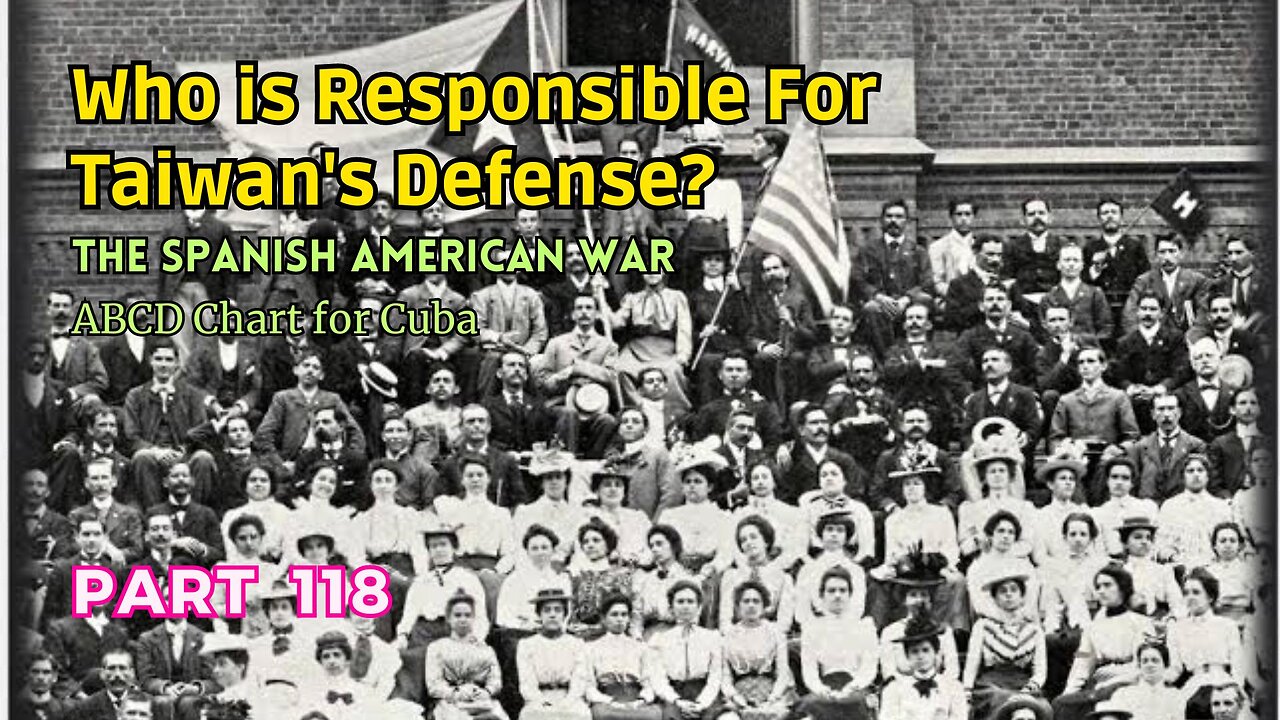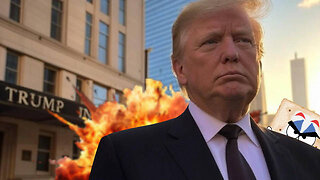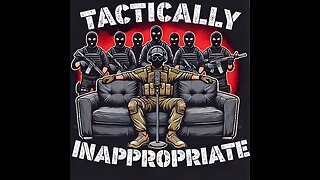Premium Only Content

(118) Who is Responsible for Taiwan's Defense? | The Spanish American War | ABCD Chart for Cuba
#taiwan #taiwandefense #taiwannews #taiwanhistory
"Who is responsible for Taiwan's Defense?" Part 118 | The Spanish American War | ABCD Chart for Cuba | Taiwan Defense Series
Taiwan's defense has been a topic of discussion for decades, as tensions between Taiwan and China have remained high. With Taiwan's strategic location in East Asia and its importance as a hub for trade and commerce, it's no surprise that its defense has become a major concern for policymakers around the world. On our YouTube channel, we'll explore the question of who is responsible for Taiwan's defense and the various factors that contribute to the country's security.
One of the most important factors in Taiwan's defense is its relationship with China. Taiwan and China have a complex history, with both countries claiming to be the legitimate government of China. China has repeatedly threatened to use military force to reunify Taiwan with the mainland, leading to increased regional tensions. As such, Taiwan's defense strategy is largely focused on deterring China from taking aggressive action against the areas of “Formosa and the Pescadores.”
In recent years, Taiwan has also increased its focus on cybersecurity and information security as part of its defense strategy. With the rise of cyberattacks and disinformation campaigns, Taiwan recognizes that it must be prepared to defend itself against these types of threats as well. To this end, the “country” has invested heavily in developing its cybersecurity infrastructure. Whether Taiwan needs to allocate a substantial budget to coordinate with both military personnel and computer experts from other countries to effectively respond to cyber threats is another topic open to debate.
The premise of the current series of films is that for some entity to be legally responsible for Taiwan’s defense, it must be able to offer some international legal references that it is holding Taiwan’s sovereignty. In films #1 to #20 of this series, after the examination of all relevant data, we offer some initial conclusions, finding that neither the “Republic of China,” the “Taiwan governing authorities,” nor the yet-to-be-founded “Taiwan Republic” fulfill this condition.
However, adopting a humble attitude, and being willing to admit that our overview of this subject matter may not have been thorough enough, we have produced an additional sixty films analyzing this “Taiwan sovereignty” issue from multiple perspectives.
While producing those films, we have also included some discussion of other related topics of interest. Still, further information and analysis are included on our “International Law Doctrines” webpage.
Much information on Taiwan is posted on the internet. However, our perspective is unique because we analyze the Taiwan issue from the point of view of the modern laws of war.
The modern laws of war are made up of three principal sources:
Lawmaking treaties or conventions, such as the 1907 Hague Conventions and their accompanying Regulations, the 1949 Geneva Conventions, etc.
Custom. Not all the laws of war have been incorporated in such treaties, and this shows the continuing importance of customary law, as established by the general practice of nations.
General Principles. Importantly, the principles of distinction, proportionality, and necessity, all of which are part of customary international law, always apply to using armed force.
In later films of this series, we review the historical background to the acquirement of US insular areas, as well as certain critical aspects of the Mexican-American War and the Spanish-American War, to understand how, at the most fundamental level, the “responsibility for defense” of a particular geographic area arises.
Have we found the answer to “Who is Responsible for Taiwan’s Defense?” For those visitors to our channel who are willing to give substantial weight to the many pieces of evidence, including examples of “established precedent,” which we have collected, the answer will probably be Yes. For those visitors to our channel who insist that international legal standards and customary norms do not apply to a discussion of Taiwan, China, and their interrelationships with the world community, the answer will probably be No.
For more information, related webpage LINKs, and contact email please visit the LINK given at the end of each video.
-
 1:36:46
1:36:46
Kim Iversen
8 hours agoLee Harvey Oswald and Cuba: The New Evidence That Changes Everything
75.6K46 -
 2:19:43
2:19:43
TheSaltyCracker
6 hours agoCybertruck Bomber Manifesto Leaked ReeEEeE Stream 01-03-25
131K213 -
 1:44:12
1:44:12
Roseanne Barr
5 hours ago $11.87 earnedSquid Game? | The Roseanne Barr Podcast #81
63.3K46 -
 1:13:27
1:13:27
Man in America
10 hours ago🚨 2025 WARNING: Disaster Expert Predicts 'ABSOLUTE CHAOS' for America
38.5K19 -

I_Came_With_Fire_Podcast
11 hours agoNew Years TERRORISM, Mexico trying to FAFO, and DARK MONEY to US Think Tanks
16K9 -
 1:47:40
1:47:40
Glenn Greenwald
8 hours agoThe Key Issues Determining the Trajectory of the Second Trump Administration: From Israel and Ukraine to Populism and Free Speech | SYSTEM UPDATE #382
67.1K39 -
 1:02:44
1:02:44
The StoneZONE with Roger Stone
6 hours agoRoger Stone Unveils His 16th Annual International Best and Worst Dressed List | The StoneZONE
30.1K4 -
 45:22
45:22
Kyle Rittenhouse Presents: Tactically Inappropriate
7 hours ago $3.46 earnedKyle Rittenhouse Presents: Tactically Inappropriate
30.5K15 -
 1:13:16
1:13:16
Patriots With Grit
6 hours agoThe Comedy of White Privilege & Government | A.J. Rice
22.9K2 -
 49:40
49:40
Havoc
10 hours agoWhat's 2025 Looking Like... | Stuck Off the Realness Ep. 23
42.3K3